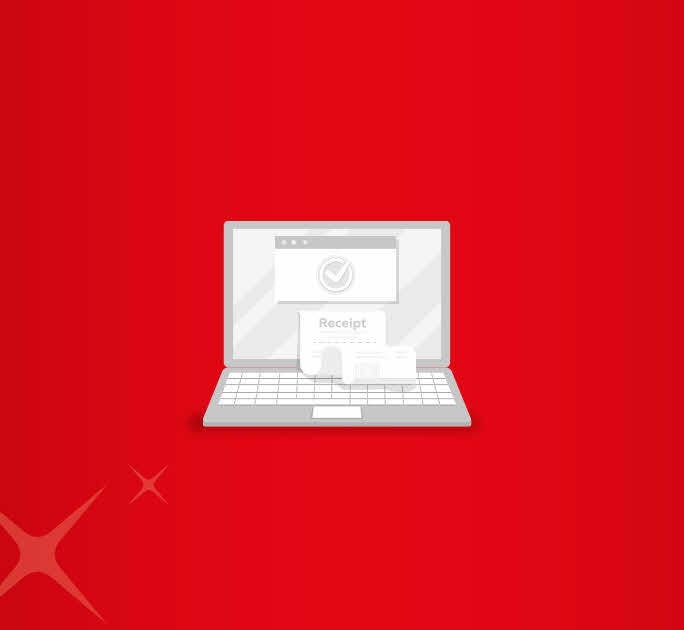- Save
- Invest
- Borrow
- Pay
- More
- Customer Services

What is an IBAN Number and How Does It Work?
Key Takeaways
- An International Bank Account Number (IBAN) is a code used in international money transfers.
- IBAN number consists of details like country code, bank code and account number and comprises a maximum of 34 characters.
- IBAN identifies the individual bank account to which the transfer is to be made.
- It is similar to the IFSC code used for domestic money transfers in India.
- IBAN doubles as a unique code that identifies each bank branch across the country.
Introduction
From international salary credits to overseas fund transfers, cross-border banking relies on standardised account details to ensure accuracy. One such key detail is the IBAN number. It's commonly required when sending money abroad and varies in format depending on the country. This article covers what is IBAN number, why it's used, and what you need to know before making international transfers.
What is an International Bank Account Number (IBAN)?
An IBAN, or International Bank Account Number, is a standard system used to identify bank accounts across national borders. It was introduced with the aim of facilitating cross-border electronic bank payments. The IBAN number has maximum strength of 34 characters, and generally consists of the following parts or components:
- A two-letter country code of the country where the bank is located
- Two check digits
- Bank code or ID (4 characters)
- Basic Bank Account Number (BBAN)
How Does an IBAN Work in International Money Transfers?
IBAN is an internationally recognised code that helps avoid routing errors in international money transfers. The payment can be made in a reliable manner as the IBAN can validate the beneficiary account number. All the details needed to identify the account to which payment has to be made are present in the IBAN.
For instance, if A is trying to make an overseas transfer to B, he can transfer money using IBAN number which comprises information like his country code, bank code and account number, among other things. This way, A can correctly identify B's unique bank account and send money into the right account.
What Does an IBAN Number Look Like?
The IBAN format varies by country but typically includes a country code, two check digits, a bank identifier, and an account number. Here’s how an IBAN example differs across countries:
- Germany
IBAN: DE89 3704 0044 0532 0130 00
Breakdown:- DE – Country code
- 89 – Check digits
- 37040044 – Bank code
- 0532013000 – Account number
- United Kingdom
IBAN: GB29 NWBK 6016 1331 9268 19
Breakdown:- GB – Country code
- 29 – Check digits
- NWBK – Bank code
- 601613 – Sort code
- 31926819 – Account number
- France
IBAN: FR14 2004 1010 0505 0001 3M02 606
Breakdown:- FR – Country code
- 14 – Check digits
- 20041 – Bank code
- 01005 – Branch code
- 0500013M02606 – Account number
IBAN vs. SWIFT Code – What’s the Difference?
Both the IBAN and SWIFT code are used in international money transfers, but they serve different purposes and are not interchangeable.
- IBAN (International Bank Account Number) is a unique identifier used to recognise individual bank accounts across borders. It ensures that the money reaches the correct account within the correct bank. The IBAN includes information such as the country code, check digits, bank code, and account number.
- SWIFT Code (also known as BIC – Bank Identifier Code) is used to identify a specific bank during an international transaction. It helps route the transfer to the correct financial institution. A SWIFT code typically includes the bank code, country code, location code, and sometimes a branch code.
Key Differences at a Glance:
|
Feature |
IBAN |
SWIFT Code |
|
Purpose |
Identifies individual bank accounts |
Identifies the bank or financial institution |
|
Format |
Up to 34 alphanumeric characters |
8 or 11 alphanumeric characters |
|
Scope |
Account-level identification |
Bank-level identification |
|
Used in |
Mainly in Europe, Middle East and other IBAN-compliant countries |
Global (used in 200+ countries) |
|
Example |
DE89 3704 0044 0532 0130 00 |
DEUTDEFFXXX |
In short, the IBAN ensures the money reaches the right account, while the SWIFT code ensures it reaches the right bank.
Requirements for IBANs
An IBAN must follow the standard format set by the International Organization for Standardization (ISO 13616). It includes a country code, two check digits, and a Basic Bank Account Number (BBAN). The length varies by country but cannot exceed 34 characters. Banks require the correct IBAN to process cross-border payments accurately.
Who Uses IBAN and Where?
IBAN is used in most European countries and many parts of the Middle East, North Africa, and the Caribbean. It is mandatory for cross-border transfers in IBAN-adopting nations, including the UK, Germany, France, Spain, and the UAE.
Common use cases:
- Sending money to friends or family overseas
- Paying international suppliers or service providers
- Receiving payments from foreign clients or employers
- Funding overseas education or living expenses
- Settling property purchases or rentals abroad
- Making donations to international charities
How to Find Your IBAN Number?
When it comes to transfer of funds, ensure that you are using the correct IBAN to avoid sending money to wrong accounts or any penalties. Here are a few simple steps to find the correct IBAN number for transactions:
Step 1: Log in to your internet or mobile banking and check your account details.
Step 2: Look for the IBAN on your bank statement or welcome letter.
Step 3: You can also contact your bank to verify the IBAN before making a transfer.
IBAN Checker: How to Verify Your IBAN
If you’re preparing to receive an international transfer, it’s important to know how to find your IBAN number accurately. This unique identifier helps route funds to your bank account without delays or errors. Here's a step-by-step guide:
Step 1: Check Your Bank Statement
The easiest way to locate your IBAN code is by referring to your bank account statement. It’s typically listed near your account number, sort code, and other key details.
Step 2: Log in to Internet or Mobile Banking
Most banks provide access to your IBAN through online platforms:
- Log in to your internet banking or mobile app
- Select the relevant savings account or current account
- Go to ‘Account Settings’ or ‘View Account Details’
- Your IBAN code and BIC/SWIFT code will be displayed clearly
Step 3: Use Your Bank’s Website or IBAN Generator
Several banks offer online tools that help generate the IBAN based on your existing account number and branch information. Always cross-check the generated details with your bank to avoid transaction errors.
Step 4: Contact Customer Support
If you’re unable to access your IBAN through the above methods, your bank’s customer service team can provide it directly.
Whether you're managing an existing savings account or making an international transfer, knowing your IBAN is essential. In the next section, we explain how to verify your IBAN before using it.
Does India Use IBAN Numbers?
In India, we use IFSC (Indian Financial System Code) for domestic money transfers. An IFSC code is a unique identifier for bank branches across the country. When making online money transfers via RTGS, NEFT or IMPS, you need the IFSC code of the bank where the payees or beneficiaries have their account. You would usually find the IFSC code printed on the cheque book that your bank issues to you at the time of account opening or when requested, or along with other details such as savings account interest rates in your account statement.
For international money transfers, we use a bank identifier code called SWIFT (Society for Worldwide Interbank Financial Telecommunication) code. As stated earlier, SWIFT code helps identify the bank to where the payee has an account.
Open Savings Account
Most banks now offer the option to open a savings account online, making it easier to get started with everyday banking, including domestic and international transfers. With DBS Bank, the process is simple and entirely digital.
Step 1: Start the process online
Visit the DBS Bank website or DBS digibank app to begin your instant account opening process.
Step 2: Keep your documents ready
Ensure you have your PAN card and Aadhaar card available for a smooth and secure onboarding.
Step 3: Complete Video-KYC
Use a smartphone or computer with internet access, camera, and video calling capability to complete the Video-KYC process from the comfort of your home.
Step 4: Verification and activation
Once your KYC details are verified, your DBS Bank Savings Account will be activated promptly.
Step 5: Begin banking instantly
You can immediately start using your fully digital account through DBS Bank’s Internet Banking platform. Your welcome kit will be dispatched shortly after.
Conclusion
While IBAN may still not be introduced in India, it is safe to say that you can have great use for it if your family is spread across different parts of the globe. So, if you are an NRI residing in the UK, and say your children are studying in Germany or France, you will need the IBAN numbers to make any money transfers to their accounts in those countries. With IBAN, you can remit money in a more convenient and hassle-fee manner.
Download the digibank by DBS app to do online international remittances safely and securely. Open a bank account online today and enjoy quick access to your savings along with easy international transfers.













